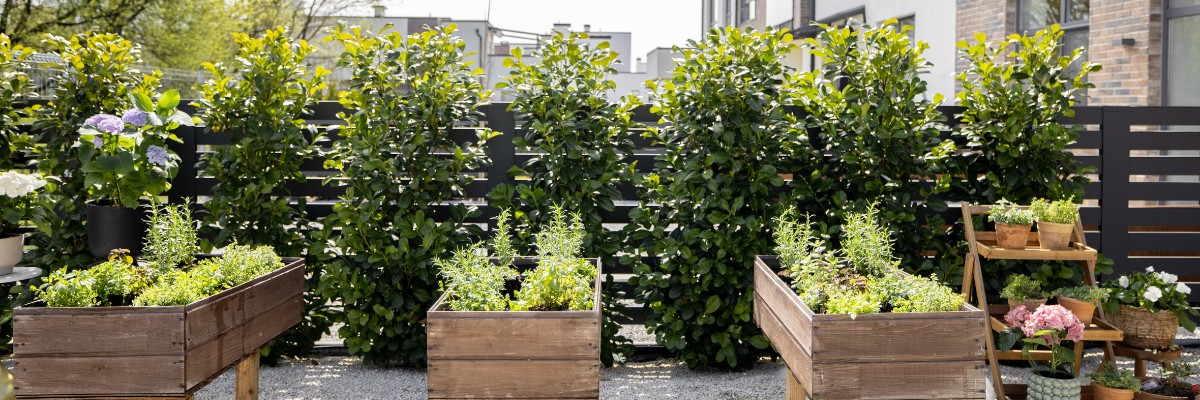A Guide to Sustainable Living: Eco-Friendly Practices for Your Home and Garden

In our modern world, there is an increasing awareness of the impact our daily choices have on the environment. From the food we eat to the products we use, people are striving to adopt sustainable practices and reduce their carbon footprint. One area where we can make a significant difference is in our homes and gardens. By implementing eco-friendly practices, we can create a sustainable living environment that benefits both our planet and our well-being. This guide will provide you with valuable insights and practical tips to help you transform your home and garden into a more sustainable and environmentally-friendly space.
Embrace Energy Efficiency
Reducing energy consumption is a crucial step towards sustainable living. Begin by evaluating your home’s energy usage and making necessary adjustments. Replace traditional incandescent bulbs with energy-efficient LED lights, as they consume less electricity and last longer. Consider installing programmable thermostats to optimize heating and cooling, reducing energy waste when you’re away. Insulate your home properly to minimize heat loss during winter and reduce the need for excessive heating. Investing in renewable energy sources such as solar panels can significantly reduce your carbon footprint and lower your electricity bills in the long run.
Conserve Water
Water is a precious resource, and conserving it is essential for sustainable living. Start by fixing any leaks in your plumbing system promptly. Install low-flow faucets and showerheads to minimize water usage while maintaining adequate pressure. Collect rainwater in barrels or cisterns and use it for watering your garden instead of relying solely on tap water. Additionally, consider replacing your traditional sprinkler system with a drip irrigation system, which delivers water directly to plant roots, reducing evaporation and water waste.
Practice Waste Reduction and Recycling
Reducing waste is a vital aspect of sustainable living. Implement a comprehensive recycling system in your home, ensuring that items like paper, plastic, glass, and metal are recycled properly. Avoid single-use products and opt for reusable alternatives, such as cloth bags instead of plastic ones or refillable water bottles instead of disposable plastic bottles. Compost kitchen scraps and yard waste to create nutrient-rich soil for your garden. By recycling and reducing waste, you can minimize landfill contributions and conserve valuable resources.
Choose Eco-Friendly Materials
When renovating or decorating your home, opt for eco-friendly materials. Look for products with certifications like Energy Star, Forest Stewardship Council (FSC), or Cradle to Cradle (C2C) that ensure sustainability and minimal environmental impact. Consider using low or zero VOC (volatile organic compound) paints and finishes to improve indoor air quality. Choose furniture made from sustainable materials like bamboo or reclaimed wood. By selecting eco-friendly materials, you support sustainable industries and reduce the negative environmental consequences of traditional production methods.
Create a Sustainable Garden
Your garden can be a sanctuary for sustainability and biodiversity. Start by minimizing the use of chemical pesticides and herbicides, as they can harm beneficial insects and contaminate water sources. Instead, opt for organic pest control methods and companion planting techniques to create a natural balance in your garden. Save and reuse rainwater for irrigation, and consider installing a water-efficient drip system. Choose native plants that are well-suited to your climate, as they require less water and maintenance. Create habitats for wildlife, such as birdhouses or pollinator-friendly flowers, to encourage biodiversity. Composting garden waste and using it as mulch enriches the soil and reduces the need for synthetic fertilizers.
Embrace Sustainable Transportation
In addition to sustainable practices within your home and garden, it’s important to consider your transportation choices. Reduce your reliance on fossil fuels by opting for public transportation, carpooling, biking, or walking whenever possible. If you own a vehicle, choose a fuel-efficient model or consider transitioning to an electric or hybrid vehicle. By reducing emissions from transportation, you can contribute to cleaner air and a healthier planet.
Educate and Engage Others
One of the most powerful ways to promote sustainable living is to educate and engage others in your community. Share your knowledge and experiences with friends, family, and neighbors, and encourage them to adopt eco-friendly practices as well. Consider hosting workshops or participating in local sustainability events to raise awareness and inspire positive change. By creating a ripple effect of sustainable living, you can amplify your impact and contribute to a more environmentally conscious society.
Monitor and Track Your Progress
To ensure that you’re making meaningful progress toward sustainable living, it’s important to monitor and track your efforts. Keep a record of your energy and water consumption, waste reduction, and other sustainable practices. Set goals and regularly assess your achievements. This not only helps you stay accountable but also allows you to identify areas where further improvements can be made. Celebrate your successes and use any setbacks as learning opportunities to refine your sustainable living strategies.
Adopting eco-friendly practices in your home and garden is an essential step towards sustainable living. By embracing energy efficiency, conserving water, practicing waste reduction and recycling, choosing eco-friendly materials, creating a sustainable garden, embracing sustainable transportation, and educating others, you can significantly reduce your environmental impact. Remember that sustainability is a journey, and every action, no matter how small, makes a difference. By taking these steps, you are not only contributing to a healthier planet but also creating a more sustainable and fulfilling lifestyle for yourself and future generations. Together, we can build a greener and more sustainable world.


